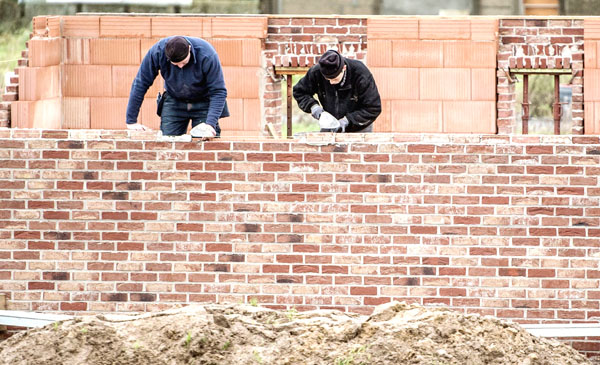Experts expect robust real estate market
Despite the downturn in the economy, experts in the real estate sector are of the opinion that though the sector will respond to both negative and positive economic sentiments this year, there will still be a lot of activities.
A PricewaterhouseCoopers’ mid 2015 report had stated that the Nigerian real estate sector would be valued at $13.65bn this year, compared to $9.16bn in 2014, accounting for 7.6 per cent of the country’s Gross Domestic Product.
One area that will experience boom in the sector is office development, with over 150,000 square metres of lettable space currently being produced for delivery over the next six months to one year.
A report by North Court Real Estate, entitled: ‘Nigeria real estate market outlook 2016’, stated that the office development pipeline had so much to offer.
It added, “The development pipeline has never been so robust; it is difficult to predict the potential process of absorption. Over 150,000sqm of lettable space is currently being produced for delivery within six to 24 months. That’s not counting inactive developments that have been stalled.
“The office development pipeline is very rich. Never has the nation enjoyed such influx of investment office space available for take-up by third parties as against owner-occupation, which was the norm in the past. The invasion may drive prices down moderately; we also postulate that occupiers may surrender leases in older buildings in preference for new builds, which may be willing to offer competitive prices.”
As expected, Lagos, according to the report, will continue to take the lead with over 25,000sqm to be delivered, with Ikoyi officially becoming the prime office destination, while Eko Atlantic City gradually takes shape; Abuja and other second tier cities will follow.
Some high grade office spaces expected to be delivered include the African Capital Alliance’s 6,670m2 Alliance Place in Lagos, with a construction cost of N165m, and the 15,734m2 Heritage Place being developed by Actis.
Others are The Wings, a 27,000m2 luxury office space being developed by RMB Westport and Oando Plc; Lake Point Towers; Madina Tower; and the 26,000m2 World Trade Centre in Abuja.
According to the report, some developments were delivered in 2015 such as the Civic Towers and Landmark Tower, which both enjoyed fairly rapid take-up but at rates less than originally desired due to the economic crunch.
“In all, there were not as many lease transactions as developers and realtors would have hoped. Some A and B-grade offices have remained empty for a prolonged period as most companies opted to remain in their current spaces. Existing rents have either stayed or lowered across locations, while new leases were closed at low rates,” it added.
The Director, Real Estate Advisory, North Court Real Estate, Tayo Odunsi, noted that office projects close to completion would create a lot of leasing activity in 2016.
“But that same cannot be said for new constructions. In all, real estate will be responsive and reactive to positive or negative economic sentiments, respectively.
“The outlook for the Nigerian real estate market in 2016 will be largely dependent on the overall performance of the economy as the demand, supply and price of space is contingent on the well-being of occupiers, developers and investors,” he stated.
Despite the lull in the retail sub-sector, it is also expected to experience some growth based on certain economic indices.
The retail pipeline is expected to take delivery of over 100,000m2 of space with developments such as the Abia Mall, Asokoro City Mall, Benin Mall, Onitsha Mall, Owerri Mall, Maryland Mall, Oasis Mall and Capital Mall.
In the residential sub-sector, experts say there will always be demand but that the supply gap needs to be covered.
A partner at the real estate surveying and valuation firm, Osas and Oseji, Mr. Kehinde Akinyemi, said the sector would still do well because it was expected to, in spite of whatever turn the economy took.
He added, “The first priority of any human is to get accommodation for himself and his family. What may not happen is the hype of values going up, but there will still be activities in the sector.
“Now that we have a civilian government, more investors will still come to the sector in spite of all the negative projections; there is confidence in the sector and when these investors come in, they will demand for residential and office accommodation to establish businesses.”
According to him, the ability of any subsector of the industry to do well will depend on the location of the transaction.
“Where commercial will do better than residential will be a function of the location; if you are in a commercial area, commercial real estate will do well, but if you are in a densely populated place, residential will be considered,” Akinyemi said.


